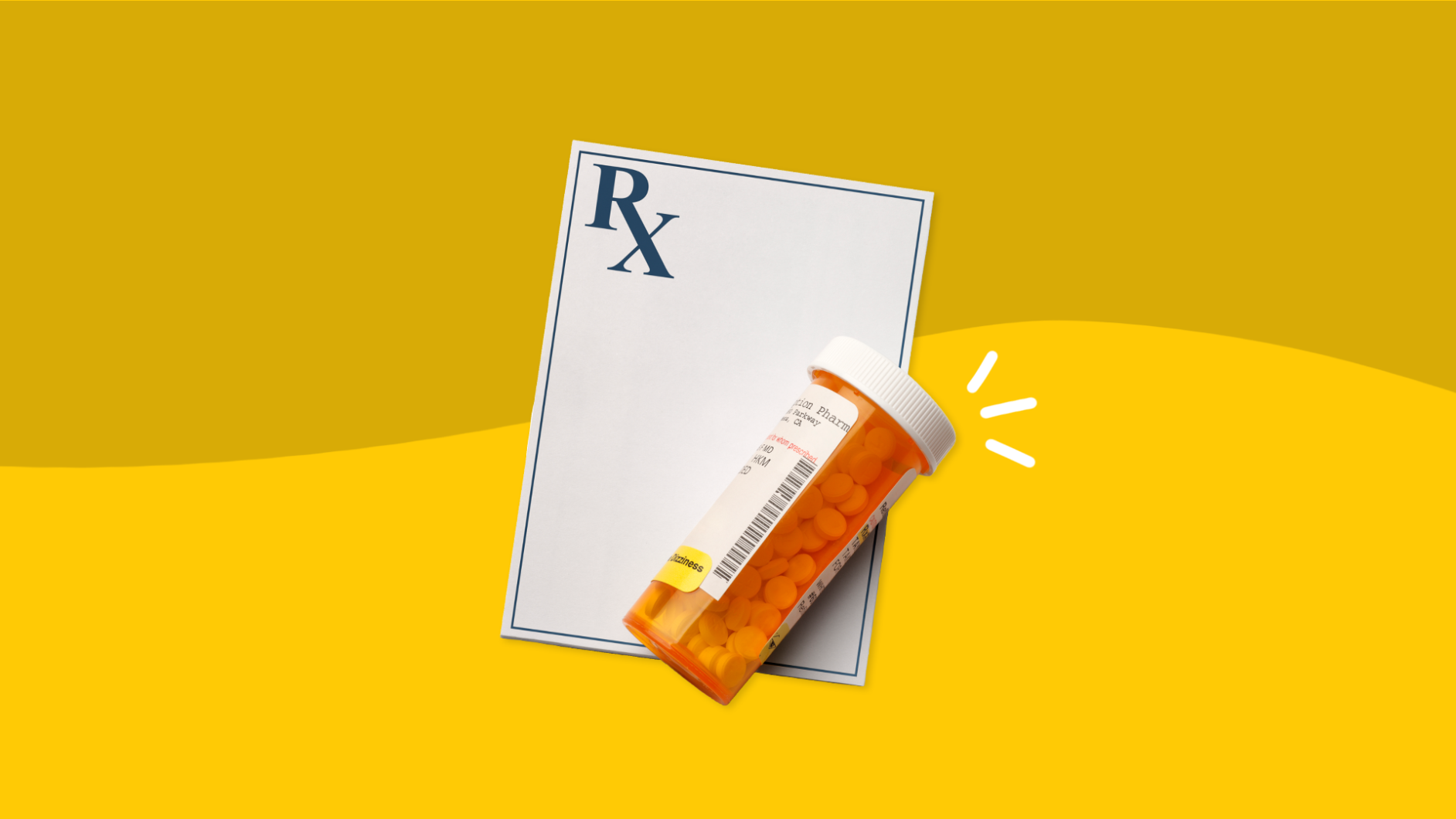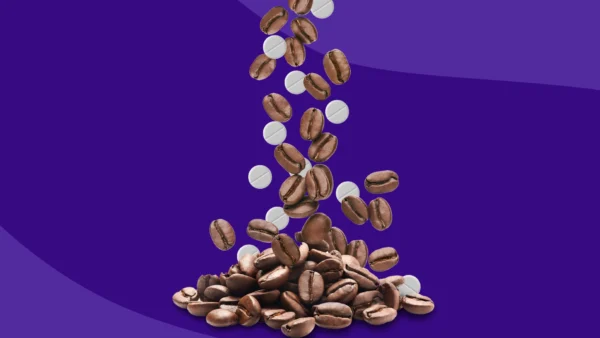Nitrofurantoin side effects | Urine discoloration | Allergic reactions | How long do side effects last? | Warnings | Interactions | How to avoid side effects
Nitrofurantoin (brand names Furadantin, Macrodantin, and Macrobid) is an antibiotic used to treat urinary tract infections (UTIs) such as cystitis (bladder infection). Nitrofurantoin works by killing the bacteria that cause UTIs and preventing recurrent bacterial infections. It may be taken to treat or prevent acute uncomplicated cystitis but is not intended to treat complicated UTIs such as kidney infections. When taking any medication, the risks must be weighed with the benefits. Consider the potential side effects, warnings, and interactions of nitrofurantoin.
RELATED: What is nitrofurantoin? | Get nitrofurantoin coupons
Common side effects of nitrofurantoin
Nausea, flatulence, and headache are the most common nitrofurantoin side effects. Diarrhea is another common side effect that usually goes away after nitrofurantoin is discontinued. However, ongoing diarrhea that occurs up to two months after stopping the medication requires medical attention. The most commonly reported side effects, which may be more likely in older adults, include:
- Nausea
- Vomiting
- Loss of appetite
- Abdominal pain
- Diarrhea
- Gas
- Abnormal weakness or loss of energy
- Vertigo
- Rapid, involuntary eye movements
- Dizziness
- Headache
- Drowsiness
- Confusion
- Depression
- Hair loss
- Urine discoloration
- Inflammation of the salivary glands
- Sore throat
- Fever
- Rash
- Itchy skin
- Hives
- Joint pain
- Muscle pain
- Rigors (shivering chills)
Urine discoloration
When taking nitrofurantoin, it is possible to experience yellow-brown coloration of the urine, but this is normal and not a reason to discontinue the use of the medication or seek medical attention. Urine color will return to normal once the course of treatment is complete.
Serious side effects of nitrofurantoin
The following side effects are rare, but serious, and require immediate medical attention:
- Severe stomach pain
- Weakness, numbness, or pain in the hands, feet, arms, or legs
- Diarrhea that is watery or bloody or continues even after stopping the medication
- Visual disturbances (blurred vision, loss of vision, or severe pain behind the eyes)
- Cough, chest pain, shortness of breath, or trouble breathing accompanied by fever or chills
- Pale skin color with weakness
- Clay-colored stools along with dark urine
- Joint pain or swelling accompanied by a fever, swollen glands, and muscle pain
- Swelling, redness, or pain in the lower jaw
- Increased pressure inside the skull causing severe headaches, ringing in the ears, dizziness, nausea, or vision problems
- Pain in the upper abdominal region, possibly spreading to the back with nausea or vomiting, dark urine, and jaundice (yellowing of the skin or eyes); these are signs of possible serious problems with liver or pancreas functioning
- Inflammation, redness, and peeling of the skin
- Severe skin rash and blisters (Stevens-Johnson syndrome)
- Additional infections caused by microorganisms that are resistant to nitrofurantoin
- Reduced levels of red blood cells, white blood cells, and platelets in the blood
- Bulging soft spots on a newborn’s skull
Allergic reactions
In clinical trials of Macrobid, a brand name of nitrofurantoin, allergic reactions occurred in less than 1% of patients studied. Symptoms of an allergic reaction include adverse effects such as uncomfortable, itchy skin and hives (red, itchy welts), swelling in the face or throat, burning eyes, painful skin, or a painful, reddish-purple colored skin rash with blistering, peeling skin. When experiencing these signs of a serious allergic reaction, seek medical attention immediately.
How long do nitrofurantoin side effects last?
Most nitrofurantoin side effects often go away over the course of treatment. However, if side effects continue and are worrisome, patients should consult their healthcare provider for medical advice.
Long-term use of nitrofurantoin is associated with drug-induced lung disease, although this condition is rare and generally occurs in patients taking this medication for six months or longer. Nitrofurantoin-induced lung disease usually gets better on its own after stopping the drug. Patients taking nitrofurantoin long-term must be monitored regularly by a professional to watch for signs of this condition and other serious side effects.
Nitrofurantoin contraindications & warnings
Withdrawal
Nitrofurantoin is not habit-forming, and there are no withdrawal symptoms from discontinuing the medication. However, it’s important to take the medication for the full course (five to seven days for uncomplicated UTI) to receive the full effect of treatment so the infection does not recur.
Overdose
If a patient takes more than the recommended dose, vomiting is likely. A high fluid intake should be maintained to promote clearance of the drug. If nitrofurantoin overdose occurs, contact a healthcare provider or poison control center immediately. Nitrofurantoin formulations include capsules and oral suspension (unused liquids should be discarded after 30 days). Nitrofurantoin doses are different depending on the patient, but typically follows these guidelines:
- Adults and children older than 12 years of age: 50 to 100 mg once a day for prevention or every six hours for treatment of acute UTI infections for five to seven days. Extended-release 100 mg capsules may be prescribed every 12 hours for five to seven days.
- Maximum dosage: Do not exceed 400 mg/day.
- Dosage in children younger than 12 years of age: Dosage is dependent on body weight and must be determined by a healthcare provider.
Restrictions
The following groups should not take nitrofurantoin:
- Infants younger than 1 month old—safety and efficacy have not been established and blood disorders may occur
- Pregnant women past 38 weeks gestation—alternative medications should also be considered during the first trimester because of the possible risk for birth defects
- Individuals with kidney disease, difficulty urinating, or inability to urinate
- Patients with a history of liver problems from using nitrofurantoin in the past
- Patients with a history of nitrofurantoin hypersensitivity
Caution should be used in patients with the following medical conditions:
- Compromised kidney or liver function or hepatitis
- Breastfeeding mothers
- Diabetes mellitus
- Anemia, those who have a vitamin B or folic acid deficiency, or a blood electrolyte imbalance
- Lung or breathing problems
- Peripheral neuropathy—a nerve condition with symptoms such as pain, numbness, weakness, and a pins-and-needles sensation
- Patients with a blood condition called glucose-6-phosphate dehydrogenase (G6PD) deficiency may become more susceptible to hemolytic anemia, a disorder in which red blood cells are destroyed more quickly than they can be produced
- Seniors older than 65 years of age should be careful when taking nitrofurantoin as they may have decreased kidney function and a higher incidence of side effects
Nitrofurantoin during pregnancy
During the first trimester of pregnancy, alternatives should be considered because nitrofurantoin use is associated with birth defects. Otherwise, nitrofurantoin is safe in pregnant women before the 38th week of gestation. Do not use nitrofurantoin at term (beyond 38 weeks), during labor and delivery, or at labor onset. Research shows that women who are breastfeeding can safely take the drug, as very little passes into breast milk. However, avoid nitrofurantoin while breastfeeding infants younger than 8 days old and infants with G6PD deficiency.
Nitrofurantoin interactions
- Antacids containing magnesium trisilicate should be avoided when taking nitrofurantoin, because they reduce the absorption of the drug, decreasing its effectiveness.
- Anesthetics such as lidocaine, articaine, mepivacaine, and ropivacaine should be used with caution with nitrofurantoin—the combo may increase the risk of methemoglobinemia, a blood disorder in which too little oxygen is carried to a patient’s cells.
- Probenecid or sulfinpyrazone, drugs used in the treatment of gout, increase levels of nitrofurantoin in the blood and may increase toxic side effects.
- The live cholera vaccine and live typhoid vaccine should not be used concurrently with nitrofurantoin.
- Fluconazole, when taken with nitrofurantoin, can increase the incidence of lung toxicity.
Nitrofurantoin and birth control
Nitrofurantoin will not affect the efficacy of oral contraceptives. However, it may affect the absorption of the birth control pill if nitrofurantoin causes vomiting or diarrhea longer than 24 hours. If this occurs, consult with a doctor for advice on alternative contraceptive measures. In general, antibiotics such as nitrofurantoin do not affect the effectiveness of birth control pills. The only antibiotic found to impact contraceptives is the tuberculosis medication rifampin.
How to avoid nitrofurantoin side effects
To minimize any side effects of nitrofurantoin, make the following considerations:
1. Take the full course of antibiotics with food
Take nitrofurantoin by mouth with food, preferably with breakfast or dinner, to increase absorption.
Be sure to take the medication at the time intervals indicated on the prescription (every six, 12, or 24 hours). It’s also important to take the medication for the full course prescribed (five to seven days) so the infection does not recur. A healthcare professional will regularly monitor patients taking nitrofurantoin long-term for severe side effects or dangerous drug interactions.
In the instance of a missed dose, take it as soon as possible, but do not take two doses at a time, or just before the next dose.
Store the medication at room temperature away from heat. Close the bottle securely.
2. Tell your doctor if you’re taking any other remedies or medications
Many patients turn to at-home UTI remedies or over-the-counter medicine to first treat their UTI. Patients should be sure to provide the full details of their medical history to their doctor before taking nitrofurantoin including any medications (prescription drugs and over-the-counter medicine), supplements, and herbs, as well as any history of kidney disease, anemia, diabetes, electrolyte imbalance, vitamin B deficiency, glucose-6-phosphate dehydrogenase (G6PD) deficiency, or any other diseases.
3. Avoid antacids and other drugs
Those taking an antacid containing magnesium trisilicate should alert their doctor. Use caution with certain local anesthetics as well as when taking the drugs probenecid, sulfinpyrazone, and fluconazole. A healthcare professional can evaluate other potential drug interactions.











